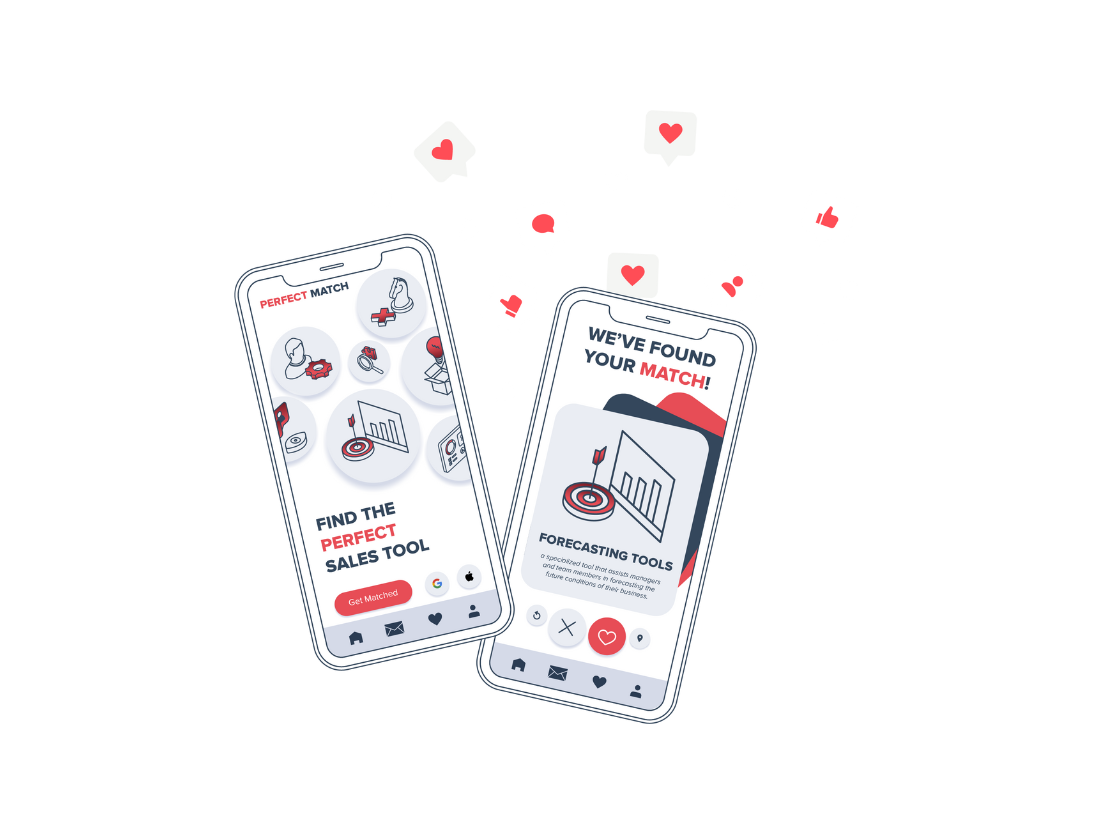Exploring the sales CRM software available for sales teams, comparing CRM software from the two major players: Sales Hub Enterprise by HubSpot and Sales Cloud by Salesforce.
HubSpot and Salesforce are two of the leading customer relationship management (CRM) software packages on the market and for good reason. Both offer sales CRM software that streamlines the sales process by enabling businesses to track deals with accuracy, consolidate customer data, and extract granular insights from prospects as they move through the sales pipeline.
In this blog post, we’ll deep-dive into the sales CRM software they’ve developed for sales teams of both growing and enterprise-level companies — Sales Hub Enterprise by HubSpot and Sales Cloud by Salesforce.
You should also check out our CRM Software Comparison page, where we demonstrate how easy (or not) it is to perform various tasks within the HubSpot, Salesforce and Dynamics CRM. Suggest your own task to us, and we’ll put each solution to the test!
Defining HubSpot & Salesforce’s offerings
HubSpot Sales Hub Enterprise: Effortlessly links your sales team and their efforts to other departments. With sales acceleration and Configure Price Quote (CPQ) software baked in, this suite helps teams track deals and manage all sales activity from one dashboard for a faster sales cycle and more closed deals.
Salesforce Sales Cloud: Track each interaction and connect sales, marketing and service departments. Sales Cloud is an agile toolkit that empowers sales teams with impactful insights and intuitive forecasts served up by innovative, automated AI technology.
Hubspot vs Salesforce: feature comparison
1. Ease of use:
HubSpot Sales Hub Enterprise
With an increasing amount of sales acceleration tools on the market, ease of use and simplicity are clear differentiators. Compared to alternatives, Sales Hub Enterprise is as intuitive as it gets. The toolkit is sophisticated, straightforward and backed by a dashboard that’s easy to navigate. Of course, you’ll have to invest time in onboarding and training, but that shouldn't be a problem as HubSpot’s dedicated professionals are available to lend a hand, as well as other specialist agencies.
Salesforce Sales Cloud
On the other side of the aisle, Sales Cloud is clunky at times and has a steep learning curve (which isn’t helped by the lack of immediately accessible educational material for guidance). Some of Sales Cloud’s greatest assets can detract from its usability, as the platform’s rich functionality and deep suite of features can take some time to get used to. As with HubSpot’s offering, Salesforce can provide training and guidelines upon request.
Civic & Social Organization Professional, Elena Perez sums up Sales Cloud’s ease of use succinctly:
“Salesforce has a steep learning curve. I've been using it for a couple of years, and I know that I still have barely scratched the surface of what I could be able to do.”
2. Integrations and add-ons:
HubSpot Sales Hub Enterprise
Over 200 third-party vendors have created native integrations for Sales Hub Enterprise. But it’s also worth noting that HubSpot announced it is sunsetting API keys in 2022 and replacing them with an “app store” style marketplace of official private and public Apps.
This is a testament to HubSpot’s ongoing focus on providing a secure environment whilst also continuing to enable its suite of tools to seamlessly integrate with a business’s existing software.
This means you don’t have to be wary of outgrowing the package — its accessibility allows the toolkit to expand as your business does.
Salesforce Sales Cloud
Salesforce boasts one of the largest third-party app marketplaces and a rich capacity for integration. Its AppExchange currently houses thousands of solutions for business challenges, and there are many add-ons that can build on its CRM capabilities, such as SalesforceIQ Inbox, and an email-CRM connector. This integration provides Salesforce clients with a collection of mobile and desktop apps, such as email and calendar integrations, and smart reminders to help sales teams nurture leads along the sales pipeline.
3. Customisation:
HubSpot Sales Hub Enterprise
While HubSpot has made an effort to improve its customisation with additions like calculable fields, it still doesn’t cater to more complex requirements. They are aware of this, however, and are taking proactive steps to enhance the level of control and customisation in areas such as lead assignment and territory management.
Salesforce Sales Cloud
Sales Cloud is highly customisable, with configuration features that require no coding experience and functionalities that give experienced developers the coding tools needed to adapt systems and complete tasks that use large amounts of data. Users can personalise their way of working by customising their dashboards to simplify the lead management and reporting processes.
4. Reporting
HubSpot Sales Hub Enterprise
Advanced settings and custom reporting give sales teams a transparent overview and full control of their sales pipelines. With Sales Hub Enterprise, you can set up custom or predictive lead scoring, configure multiple deal pipelines, and put together hierarchical teams (all with line-of-sight of one another). Sales Hub Enterprise also houses features such as calculated properties, advanced goals, and recurring revenue reporting for accurate performance reviews.
Salesforce Sales Cloud
Equally robust, the Sales Cloud platform lets users set up multiple dashboards and associate each of them with a data set. Depending on which Sales Cloud suite you choose, your sales professionals will be able to display “current pipelines by product family, recent sales activity, the biggest deals on the board right now, and neglected accounts” to create meticulous, custom reports.
5.Pricing:
While it may initially seem more expensive, HubSpot’s sales CRM software is actually more cost-effective. Whereas Sales Cloud’s Enterprise package costs € 150 (approximately $167) for 1 user per month, HubSpot’s Sales Hub Enterprise costs $1,200 a month for 10 users, which breaks down to $120 per user, per month.
If you’re a small organisation that doesn’t require multiple user profiles, then Salesforce may be a better option price-wise. But if you need your sales team to scale with your business or have reached enterprise-level status already, it makes more sense to go with HubSpot.
Conclusion
Both Sales Hub Enterprise and Sales Cloud are exceptionally powerful sales CRM platforms that streamline processes and empower teams with the information and tools they need to sell. So which is best for you?
It all boils down to what kind of functionality you require:
Are you only concerned with the sales capability of the software, or do you require a platform that connects your promotional efforts and fosters interdepartmental cohesion?
If it’s the former, then Salesforce is for you because it’s been principally designed as a powerful sales platform. If the latter, then HubSpot would suit your organisation better. The HubSpot platform has evolved into an all-in-one, enterprise-grade tool that connects marketing, sales and service departments seamlessly. But, if you’re on the fence and equally impressed with both platforms, consider choosing HubSpot and then connecting it to Salesforce via the HubSpot-Salesforce integration.
For Huble Digital, there’s just no match for the depth of functionality, customisation options, and intuitiveness of HubSpot’s sales and marketing software. What’s more, HubSpot's offerings are geared towards future growth and connectivity, meaning you only ever need to have one solution for your company’s marketing, sales and customer service (instead of a series of disconnected and difficult-to-manage tools).
If you want to know which is the better CRM platform, view our Salesforce vs HubSpot resource page.
We’ve found that their software greatly enhances our clients’ sales efficacy and has a marked — and calculable — effect on their bottom lines. If you’re ready to empower your sales team, simplify processes and drive more sales, contact Huble Digital to chat with one of our consultants.













